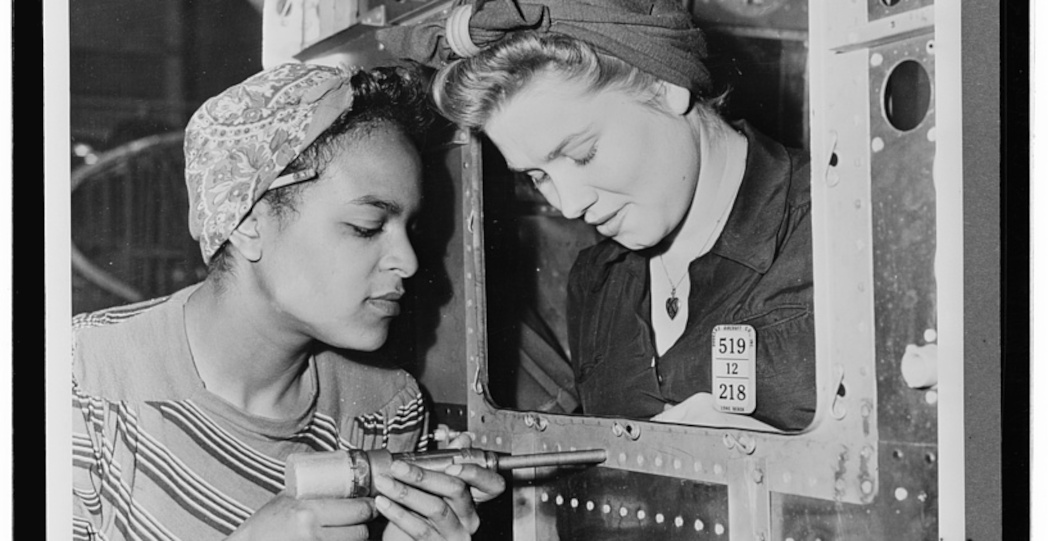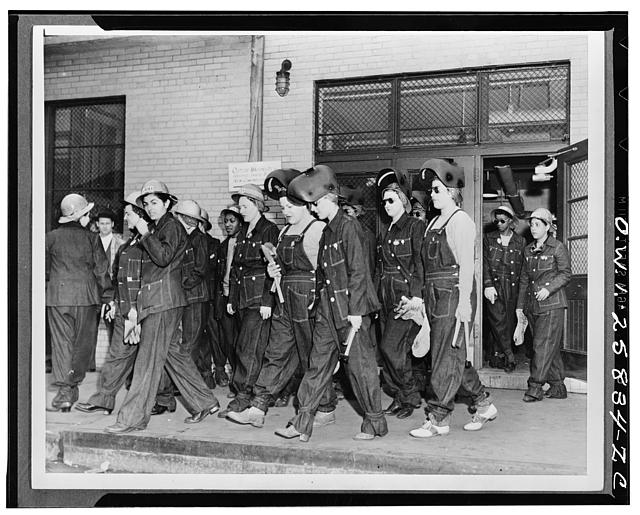Dora Miles and Dorothy Johnson working at the Douglas Aircraft Company, approx. 1945, from the Library of Congress
March is Women’s History Month and we wanted to take the time to highlight some amazing contributions to the U.S. military made by women. We’ve posted before about some of the fearless female soldiers who challenged the status quo by becoming the first four-star officer, first female commander of a space shuttle, or revolutionizing military technology through development of a computer programming code, but this month, we want to specifically highlight women and their contributions during World War II, because March 21st is Rosie The Riveter Day.
While many probably recognize her famous flexed arm and “We Can Do It!” attitude, Rosie is an icon of military history and Women’s History Month. Rosie represents the millions of women who went to work in factories to build vehicles, weapons, and ammunition to support the U.S. during World War II.
During the 1940’s, millions of women not only began working in the industrial sector as welders and Riveters, but they also went to fill the open positions left behind by deployed soldiers in every part of the economy. It’s important to remember that women outside of the Riveters had an equal impact on American history, especially once the war was over and women held onto their acquired positions, greatly increasing the number of women in the contemporary workforce.
Women welders on the way to their job at the Todd Erie Basin dry dock, approx. 1943, from the Library of Congress
And Riveters still have the power to influence the world today; 96-year-old Mae Krier is a real-life Rose The Riveter who built B-17s and B-29s for Boeing from 1943-1945. She helped push the Rosie The Riveter Congressional Gold Medal Act through Congress. Signed into law in December 2020, it collectively awards the Congressional Gold Medal to all the “Rosies” for their immense contributions to America’s victory. Krier also advocates for girls and young women to pursue careers in STEM.
Rosie The Riveter Day isn’t currently codified as a national holiday, but over the past few years Congress have approved a resolution to mark the day, though an observation date has not been consistent. There has been a push to keep March 21st as the annual holiday, falling within Women’s History Month, so that we can take the time to honor the “everywoman” that Rosie represents.
Rosie The Riveter came at a time where society needed women to step up to assist the U.S. military during WWII and led to major advancements for women in the workplace. During Women’s History Month, it seems apt to honor the Riveters and their heroism.





